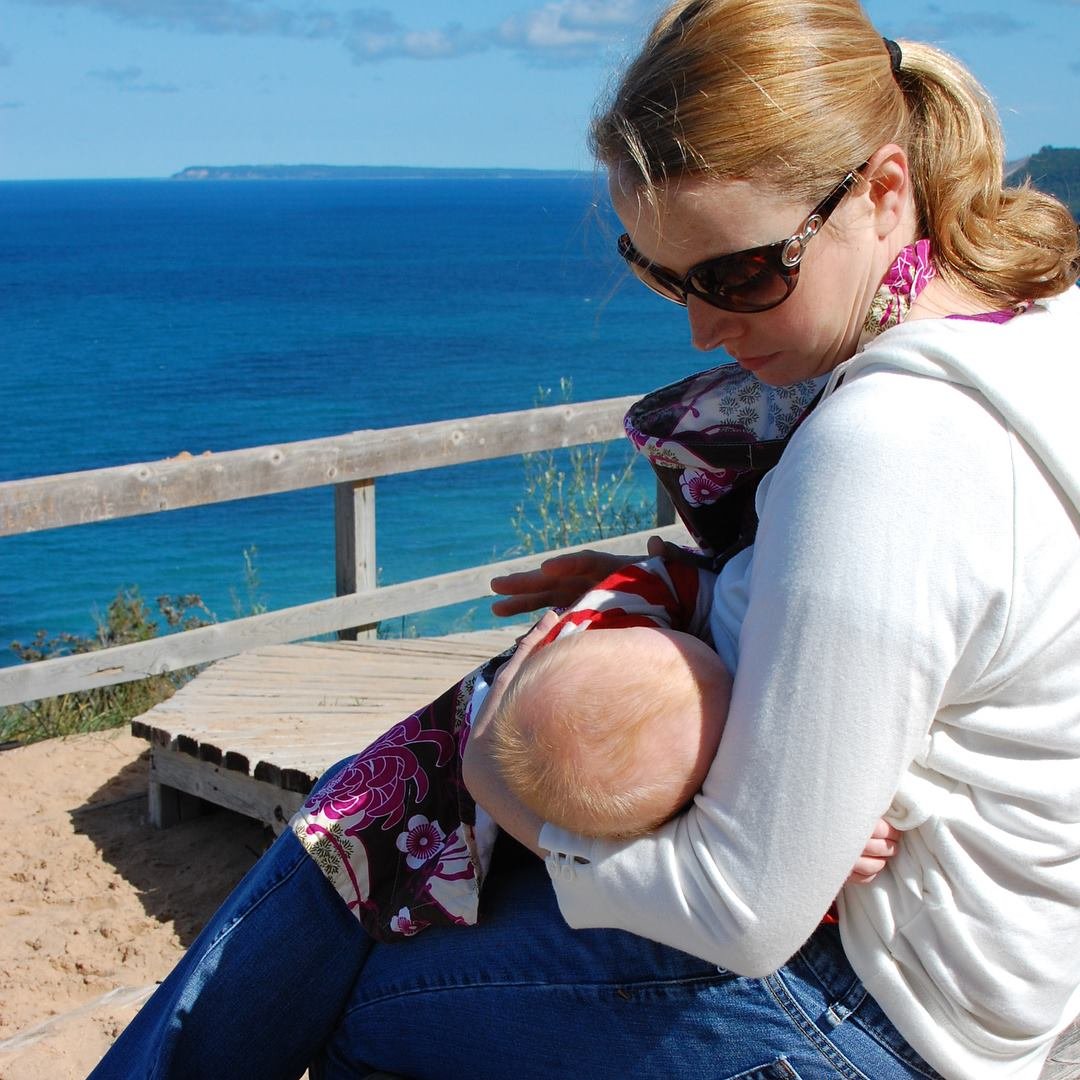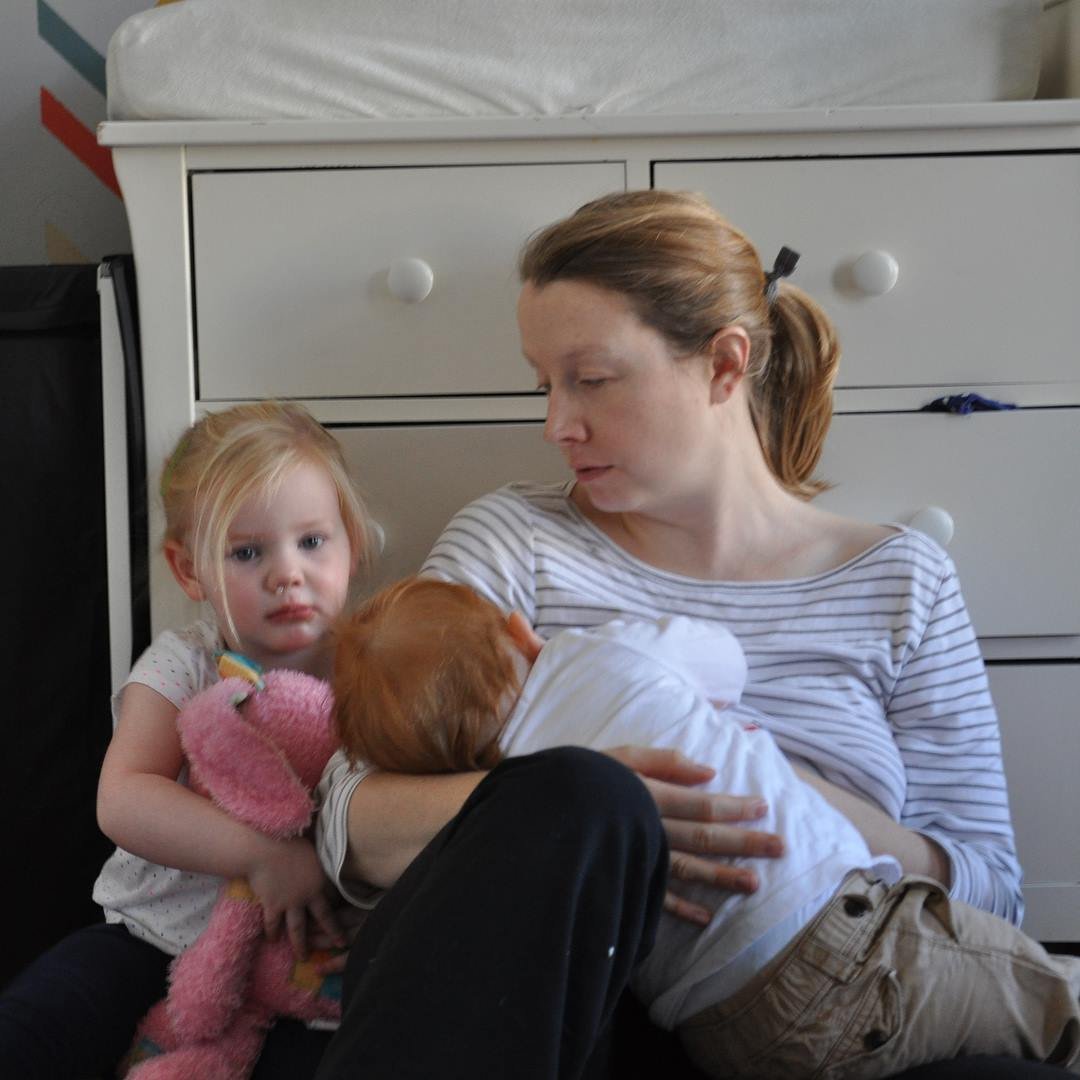Let's Tell Your Story- World Breastfeeding Week
Kim ,Ellie, Owen and Maren: Reducing Stress and Anxiety While Breastfeeding
*Kim Hawkins is one of Doulas of Capitol Hill's awesome doulas and also happens to be a Certified Lactation Counselor. If you are interested in speaking to her about supporting you through pregnancy, birth and postpartum, please inquire!*
Breastfeeding my three children has been one of my favorite things about having a baby. The snuggles, the joy in providing them their food and the ease at being ready to nurse as soon as they are hungry. But nursing is also hard and sometimes getting to a place of it feeling easy doesn’t always happen. Sometimes breastfeeding is tough and the relationship isn’t what you want it to be. The list of reasons include getting the latch right, sore nipples, low milk supply, late night feedings or figuring out how to use a nursing cover in public.
But the often the reason it’s hard, especially in the beginning, is it’s all you think about. With all three of my kids I had a lot of stress and anxiety regarding breastfeeding. It’s was the questions that constantly played in my head: How does that latch feel? Is the baby in the right position? They are falling asleep, should I wake them up? Did they eat enough on that side? Should I offer the other breast? Should I just let them sleep? And the list goes on and on.
It can feel lonely because as much as our partners can be supportive and helpful, it can feel as if it’s all on the nursing mother’s shoulders. But here the secret to breastfeeding success- SUPPORT. You don’t have to go through it all alone, there are a lot of people who want to help you be successful, from your partner to your doula to professions such as IBCLC’s and CLC’s. Here are some ways to help reduce the stress and anxiety and get support for breastfeeding before the baby is born, during the early days and beyond!
1. During pregnancy: Meeting with an IBCLC or a CLC to discuss breastfeeding helps to answer questions you may have, be prepared of what items you’d like to have on hand, discuss your health history that may affect breastfeeding and what to expect during the early days. This is also helpful for partners to hear so they can know how to best support mom, because even though she’s doing the work of providing the food support from partners is key in success during the early days.
2. At the hospital: Your doula and nurse will help with the first latch during the golden hour of birth. I’ll be honest, the first latch is usually awkward and not great but that’s okay! The first latch isn’t a make or break it in determining your breastfeeding relationship. It’s to get the hormones started to get milk production going and get the baby colostrum. During your stay at the hospital, ask for help from the postpartum nurse and the Lactation Consultant at the hospital. They can help with latch and answer any questions you may have.
3. At home: Your doula will visit you soon after you come home from the hospital and can help answer some basic questions but even better is scheduling a visit from an IBCLC or CLC to really go in depth with you about latch, positions, any issues you are having and make sure you feel confident in what’s going on. Having support in your home environment can feel invaluable that first week at home as you’re adjusting to life with a newborn. And this isn’t just for the first baby! Adding a new baby to the household can throw things off and different babies can have different challenges.
4. Beyond the early days: As the baby gets older new questions usually come up. This includes pumping, introducing a bottle, returning to work and introducing solids. Seeing or having a phone consultation during these times with an IBCLC or CLC is an awesome resource.
5. Peer support and support groups: Finding your local La Leche League and USA Breastfeeding sponsored groups offer a knowledgeable leader and support from other moms. Local new mom groups such as PACE help with peer support of other moms going through the same struggles and successes. Lastly, online groups on Facebook, like DCH Village, usually means there’s other moms who are able to quickly answer questions that pop up.
Regardless if you decide to nurse, to supplement or formula feed, the doulas, IBCLC’s and CLC’s with Doulas of Capitol Hill are here to offer nonjudgmental support. Whatever decision you make that is best for YOUR family is the most important thing. We’re here to help support you to help ease your stress and anxiety!



